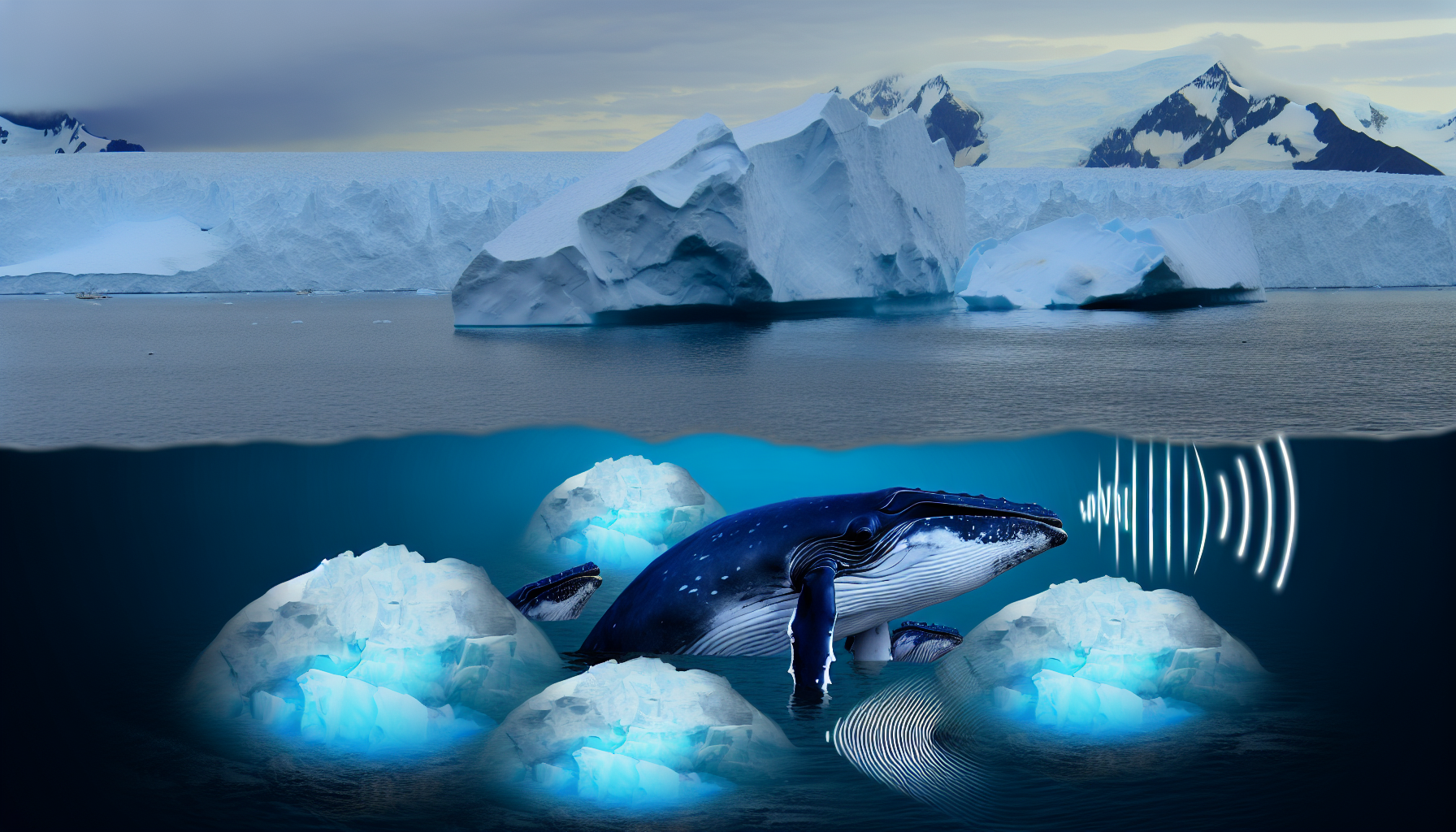In the vast, once-vibrant oceans of our world, a haunting lament rises and falls with the tides – it is the song of whales, beings as mysterious as they are immense. But nowadays, their operatic melodies are less a testament to the mesmerizing tapestry of marine life and more an elegy for a dying existence, an echo of a vanishing language in the watery depths of a Green Dystopia.
Delving deep into the aquatic abyss, where light fails to touch the cold expanse, whales communicate over vast distances with their alluring calls. However, this vital communication is being silenced. What was once a symphony of complex sounds has now transmogrified into distress signals as the behemoths of the ocean suffer a multitude of misfortunes.
As apex communicators, these cetaceans rely on sophisticated acoustic patterns to navigate, feed, and breed. But tragedy unfolds as relentless climate change warms their frigid habitats, leading to unprecedented ice melt. The subsequent rise in sea levels and altered ocean currents has not only ravaged their homes but also thrown their delicate mating dances into disarray.
The cruel irony of these gentle giants, having lived harmoniously within the ocean’s bountiful precincts for millennia, howls with indignation as noise pollution – once an incessantly buzzing background – has ceased in a troubling quiet, not due to our stewardship but to our downfall. With humanity’s retreat, engines no longer churn the seas, and yet this stillness does not signal a return to a natural order, but rather the cessation of it.
In this Green Dystopia, the whales’ song narrates a tale of ecological collapse. Researchers detail the drastic changes in whale behavior as these sentinel species face food scarcity and migration disruption. Acidification of the ocean eats away at the building blocks of marine life, while contaminants accumulate in these titans, a cruel inheritance passed down to each generation, along with their songs.
Their once elaborate vocalizations, ripe with cultural significance, now stand threatened. As ‘The Quiet Apocalypse – When Global Noise Pollution Ceased’ previously revealed, with immense biodiversity loss, the future may be a silent ocean devoid of the majestic whales’ calls. Conservationists mourn; their long battle to combat noise pollution proved to be a Pyrrhic victory. In place of bustling marine life, there is now an uncanny hush – the backdrop against which the whales’ lament spills forth. A whisper of a once resplendent underwater society, teetering on the brink of oblivion.
This narrative extends beyond ecological reports and enters the realm of our collective consciousness, stirring a profound sense of loss. Community efforts to preserve these ancient calls in digital archives or interactive exhibits are small acts of defiance against an inevitable end. They serve not only as memorials to the awesome power and mystery of nature but as somber acknowledgments of a legacy that humanity will leave in its wake.
A future article might explore the efforts to synthetically replicate whale communication, to entice our oceanic cohabitants into areas where they might thrive once more. Yet, such attempts smack of desperation, a futility born of helplessness as nature, once conquered and claimed, slips inexorably from our grasp. Rise and fall, the song goes on, but for how much longer?
